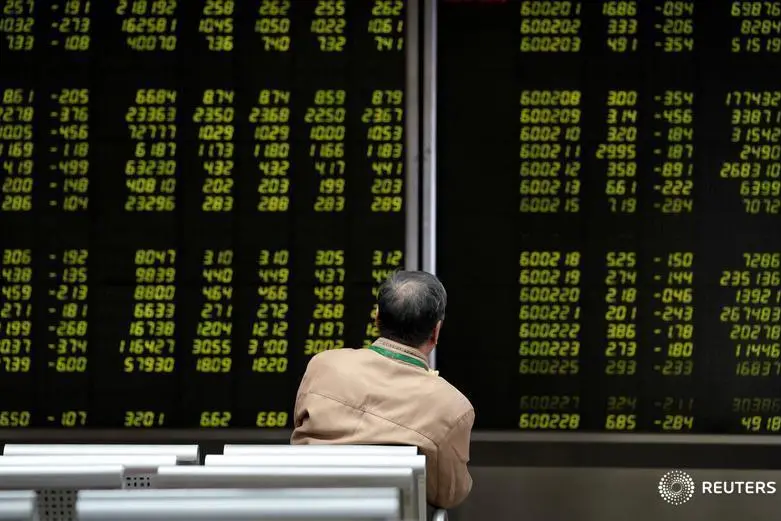PHOTO
China stocks ended higher on Thursday after struggling to find direction for most parts of the session, as investors fretted over signs of slowdown but took comfort in comments from Premier Li Keqiang on stabilising the ailing economy.
** The blue-chip CSI300 index rose 0.3% to 3,993.04, after falling as much as 1.1% in morning trade, while the Shanghai Composite Index gained 0.5% to 3,123.11 points.
** "We should strive to ensure reasonable economic growth in the second quarter, lower unemployment rate as soon as possible, and keep economic operations within a reasonable range," official Xinhua news agency quoted the premier as saying on Wednesday.
** "First, he mostly delivered a sombre message on how bad the economy has deteriorated," said Jason Hsu, founder and CIO of Rayliant Global Advisors.
** "Whatever commitment to focus on aiding the economy is interpreted by the market, it is cheap talk. Until substantial rate cuts occur and actual fiscal stimulus packages are announced, investors will mostly ignore 'talks'."
** The meeting comes as global investment banks have slashed their 2022 growth outlook for China to as low as 3%, as the economy hit by severe COVID-19 outbreaks and stringent anti-virus measures.
** "The economic situation in China has reached a point that is not just about higher or lower growth, but about preventing potential systemic risk events," said Alex Wolf, Head of Investment Strategy, Asia at J.P. Morgan Private Bank.
** "In the near-term, we would not be surprised if the MSCI China/CSI300 re-test their mid-March/end-April lows."
** Meanwhile, China issued guidelines to expand infrastructure investment by freeing up capital locked in existing projects, using tools such as real estate investment trusts (REITs). This helped real estate developers and construction engineering companies rise 1.5% each.
** Defence stocks jumped 3.4% on rising geopolitical tensions, as China's foreign ministry said the U.S.-backed Indo Pacific Economic Framework for Prosperity plan seeks to decouple countries from the Chinese economy.
** However, auto stocks lost 1.4% as data showed manufacturers sold more vehicles than last month but fewer than a year before due to the virus outbreak.
(Reporting by Shanghai Newsroom; Editing by Sherry Jacob-Phillips)




















